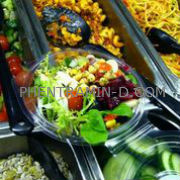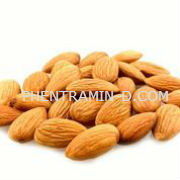 Eating Plan" width="300" height="300" />
Eating Plan" width="300" height="300" />
How to Start an Eco-Friendly Eating Plan
What you eat every day has a big impact not only upon your health, but also upon the environment. This is why so many people today are focusing on making the best choices for their bodies and the planet.
If you are ready to also embark upon an eco-friendly eating plan, it is easier than you probably think. Continue reading to learn how you can get started.
Purchase Organic Whenever Possible
More and more organic options are hitting farmers markets and supermarket shelves all over the world every day, so take advantage of this. The growing demand for pure and clean foods that haven’t been adulterated by pesticides and herbicides is allowing more products to become available and affordable. When you eat organic foods, you will be supporting organic farmers who do not use genetically modified seeds and who have chosen to use natural pesticides that do not harm the environment and wildlife. Therefore, this is an essential component of any eco-friendly eating plan.
Eat More Plant-Based Meals
Another important aspect of an eco-friendly eating plan is the inclusion of more plant-based ingredients and meals. Experts claim that you can’t really be an environmentalist if you consume animal products, which include meat, dairy, poultry, and fish. This is because a lot of grains are grown on a lot of land in order to feed the animals, and the animals are also housed in terrible conditions that end up polluting the soil, water, and air in the process. Plus, when you consider how much land needs to be cleared for the farms that will raise the animals, it is clear that this is not an eco-friendly approach to food production. On top of all of that, overfishing is depleting fish stocks around the world, as well as polluting the oceans while adversely affecting myriad species. And the use of hormones and antibiotics in animals that are raised for food is also detrimental to the planet and human health.
Reduce, Reuse, Recycle
Finally, focus on purchasing foods that are packaged in containers that can easily be reused and recycled. Avoid plastic whenever possible, and take active steps to support companies that use recycled packaging materials.
Eating in a way that supports your wellbeing and the wellbeing of the entire planet doesn’t have to be difficult. It’s simply a matter of being informed about how your daily actions impact others, and then making the decision to support those who are producing foods in a responsible manner.




